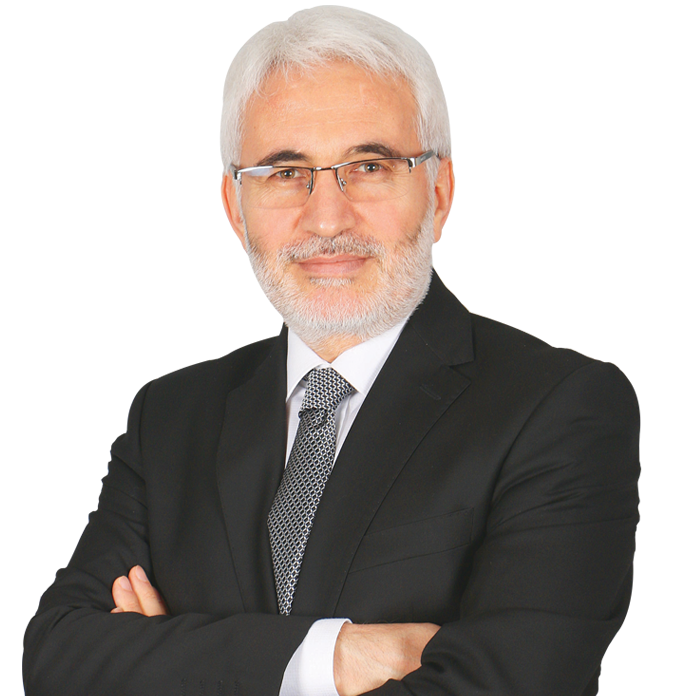French President Emannuel Macron spilled the beans. “When we hit the Damascus regime, this separated Russia and Turkey. Turkey found the missile attacks positive,” he said.
Yes, Turkey found the U.S., U.K. and France’s missile intervention against Bashar Assad’s chemical attacks “positive.”
But there were sentences before and after this statement. For example, it was said, “Blood is being shed in Syria for the last seven years, where was your mind when Assad has been killing his people for seven years?” For example, it was said, “You intervene when he kills with chemical weapons, but why don’t you intervene when he kills with conventional weapons?”
In other words, when evaluated without looking at what was said before and after, it seems like Turkey accepts the U.S., U.K. and France’s missile intervention aimed at the Damascus regime “unconditionally.”
No, it’s not like that.
But they take it the way it works for them, what can we do?
One of their aims is to sour ties between Turkey and Russia
One of the things that is to their advantage after striking Damascus is the souring of ties between Turkey and Russia, which is currently working in coordination with Syria. Macron spilled the beans anyway. What he said is, “We hit Assad. Turkey found the intervention positive. This means a fall out between Russia and Turkey.”
It appears that this was also one of their aims. Perhaps this was the actual aim.
Because what they say, “We hit the Assad regime with used chemical weapons” is an illusion. I had explained this at length in the previous article.
At this stage, we need to pursue a question like: “Is it not an important step to stop the bloodshed for Turkey and Russia to meet on common ground regarding Syria? Or, is it not right for Turkey to work together with Russia for its ‘perpetuity’ while taking steps in relation to northern Syria, which it considers a threat?”
The moment we say “yes” in response to this question, we are accused of being “pro-Russian” or “pro-Eurasia” – and by close circles at that.
Yet, how quickly have we forgotten that the U.S. supplied the Kurdistan Workers’ Party’s (PKK) Syrian affiliate, the Democratic Union Party (PYD) and its armed wing, the People’s Protection Units (YPG), with 5,000 truckloads of weapons? How quick have we forgotten that when we entered al-Bab, the U.S., which wanted to stop Turkey through Daesh terrorists, postponed the Raqqa operation and overlooked the terrorists there coming to al-Bab.
For God’s sake, how quick have we forgotten that the tunnels Turkish soldiers found when Mount Burseya fell were built to NATO standards?
Did we forget July 15, the tunnels in Mount Burseya and the 5,000 truckloads of weapons?
We could not have forgotten July 15, could we? Nor the role NATO’s U.S. had assumed back in those days?
What we have been saying from the very beginning is: Assad is a killer. Assad is a tyrant. Russia, which Assad called to Syria, has spilled at least as much blood as Assad and caused as much pain as Assad. Just like Iran. Just like the Iran-backed Hezbollah.
However, there is one truth, and that is that the U.S. and its allies have set up the Syria front in a way that will directly include Turkey.
After the downing of the Russian jet, let alone using Syria’s airspace, hadn’t we been unable to fly even on the Turkey side of the Syria border?
Didn’t our Syria policy overlap with U.S. policies until Aug. 9, 2016 (This is the date President Recep Tayyip Erdoğan directly met with Russian President Vladimir Putin in Russia. It is also the date the public vigil at the squares was ended after the July 15 coup attempt)?
As a matter of fact, were there not figures in Ankara who even protected the terror corridor formed by the PYD/YPG-PKK in northern Syria, something we continue to see as an issue of perpetuity?
Back then, neither pro-NATO sentiment nor pro-U.S. sentiment was being discussed.
We stand neither next to Russia, nor next to the U.S. We stand next to the nation, Turkey’s interests and Turkey’s perpetuity.
Today, Turkey’s interests was to ensure a ceasefire between Russia and Iran in Syria, to form a safe zone, to stop the terror corridor in Turkey’s south regardless of what it cost.
Had there been no mutual understanding with Russia, neither the Euphrates Shield nor the Olive Branch operation could have been conducted.
And some foolish people are accusing us of being “pro-Russia” with such a realpolitik.
You cannot call this “pro-Russia sentiment” or “pro-Eurasia sentiment.” This is called being Turkish, being local. This is called balance. Turkey and Russia have a mutual understanding. Yet, old strategic partners are recently experiencing deep differences in views.
What we need to do at this point is to protect our “nafs.” What we identify as the nafs is our homeland, our nation, our future.
Otherwise, we are not pro-Russia, pro-NATO or pro-U.S.




















